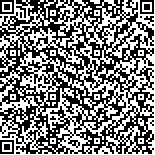| Quote
: |
苏丽红,郭榕蕙,洪燕玲,林丽莉.基于Nrf2/HO-1通路探讨捏脊改善孤独症大鼠行为障碍的机制研究[J].湖南中医药大学学报英文版,2024,44(4):592-599.[Click to copy
] |
|
| |
|
|
| This paper
:Browser 2039times Download 1135times |
| 基于Nrf2/HO-1通路探讨捏脊改善孤独症大鼠行为障碍的机制研究 |
| 苏丽红,郭榕蕙,洪燕玲,林丽莉 |
| (福建中医药大学, 福建 福州 350122;福建中医药大学, 福建 福州 350122;福建省中医药科学院, 福建 福州 350003) |
| 摘要: |
| 目的 从氧化应激及核因子NF-E2相关因子-2(nuclear factor erythroid 2-related factor 2,Nrf2)/血红素加氧酶-1(heme oxygenase-1,HO-1)通路探讨捏脊改善孤独症大鼠行为障碍的作用机制。方法 将孤独症模型大鼠随机分为模型组、捏脊组,每组9只;同时纳入9只正常大鼠为空白组。捏脊组进行捏脊,21次/d,持续28 d。干预结束,各组大鼠进行行为学检测后处死取材,灌注固定后Nissl染色检测海马CA1、CA2区神经元损伤情况,取海马以生化试剂盒检测还原型谷胱甘肽(glutathione,GSH)、丙二醛(malondialdehyde,MDA)、超氧化物歧化酶(superoxide dismutase,SOD)、过氧化氢酶(catalase,CAT)表达,Western blot检测Nrf2及其磷酸化指标p-Nrf2、HO-1、NAD (P) H:醌氧化还原酶1[NAD (P) H:quinone oxidoreductase 1,NQO1]表达。结果 与空白组比较,模型组社交指数、站立次数均显著降低(P<0.01),理毛次数显著增多(P<0.01);与模型组比较,捏脊组社交指数、站立次数均明显提升(P<0.01),理毛次数减少(P<0.05)。空白组神经元细胞排列紧密,形态规则,尼氏体数量丰富;模型组有大量神经元受损,细胞核固缩深染,细胞膜破裂、边界模糊,尼氏体偏移、溶解,尼氏体阳性细胞数量减少;捏脊组细胞排列基本整齐,核固缩形态有所改善,细胞形态可,尼氏体阳性细胞数量增加。与空白组比较,模型组GSH、SOD、CAT、p-Nrf2/Nrf2、HO-1、NQO1表达量均降低(P<0.05或P<0.01),MDA表达量明显升高(P<0.01);与模型组比较,捏脊组GSH、SOD、CAT、p-Nrf2/Nrf2、HO-1、NQO1表达量均升高(P<0.05或P<0.01),MDA表达量显著下降(P<0.01)。结论 捏脊能改善孤独症大鼠行为障碍,与其活化Nrf2/HO-1通路、引起抗氧化因子表达、改善氧化应激、减轻神经元损伤有关。 |
| 关键词: 孤独症 捏脊 氧化应激 Nrf2/HO-1通路 社交行为 海马区 |
| DOI:10.3969/j.issn.1674-070X.2024.04.010 |
| Received:January 05, 2024 |
| 基金项目:国家自然科学基金项目(81704194);福建省自然科学基金项目(2022J01366);福建省属公益类科研院所基本科研专项项目(2023R1003006)。 |
|
| Mechanism of spine pinching in behavioral improvement of autistic rats based on Nrf2/HO-1 pathway |
| SU Lihong,Guo Ronghui,Hong Yanling,LIN Lili |
| (Fujian University of Chinese Medicine, Fuzhou, Fujian 350122, China;Fujian University of Chinese Medicine, Fuzhou, Fujian 350122, China;Fujian Academy of Chinese Medical Sciences, Fuzhou, Fujian 350003, China) |
| Abstract: |
| Objective To investigate the mechanism of action of spine pinching in behavioral improvement of autistic rats from the perspective of oxidative stress and the nuclear factor erythroid 2-related factor 2(Nrf2)/heme oxygenase-1(HO-1) pathway.Methods The autism model rats were randomized into model group and spine-pinching group,with nine rats in each group.Nine normal rats were included as the blank group.In the spine-pinching group,spine-pinching manipulation was performed 21 times/d for consecutive 28 d.After the intervention,the rats in each group were sacrificed for sampling after behavioral tests.After perfusion and fixation,Nissl staining was performed to determine the neuronal damage in the CA1 and CA2 regions of the hippocampus,biochemical kits were applied to measuring the expressions of reduced glutathione (GSH),malondialdehyde (MDA),superoxide dismutase (SOD),and catalase (CAT) in the hippocampus,and Western blot was used to examine expressions of Nrf2 and its phosphorylation indicators p-Nrf2,HO-1,and NAD (P) H:quinone oxidoreductase 1(NQO1).Results Compared with the blank group,the model group exhibited significantly lower social index and standing frequency (P<0.01),as well as a significant increase in grooming frequency (P<0.01).Compared with the model group,the spine-pinching group showed a significant improvement in social index and standing frequency (P<0.01),with a reduction in grooming frequency (P<0.05).In the blank group,the neurons were closely arranged,morphologically regular,and abundant in Nissl bodies.However,in the model group,a large number of neurons were damaged,with pyknotic and deeply stained nuclei,ruptured cell membranes,blurred cell boundaries,displaced and dissolved Nissl bodies,and a decrease in the number of Nissl-positive cells.In the spine-pinching group,cells were basically arranged neatly,with relieved nuclear pyknosis,acceptable cellular morphology,and an increase in the number of Nissl-positive cells.Compared with the blank group,GSH,SOD,CAT,p-Nrf2/Nrf2,HO-1,and NQO1 expressions in the model group decreased (P<0.05 or P<0.01),and MDA expression significantly increased (P<0.01).Compared with the model group,GSH,SOD,CAT,p-Nrf2/Nrf2,HO-1,and NQO1 expressions were higher (P<0.05 or P<0.01) and MDA expression was significantly lower (P<0.01) in the spine-pinching group.Conclusion Spine pinching can improve the behaviors of rats with autism,the mechanism of which is related to activating the Nrf2/HO-1 pathway,inducing the expressions of antioxidant factors,relieving oxidative stress,and reducing of the neuronal damage. |
| Key words: autism spine pinching oxidative stress nuclear factor erythroid 2-related factor 2/heme oxygenase-1 pathway social behavior hippocampus |
|

二维码(扫一下试试看!) |
|
|
|
|


